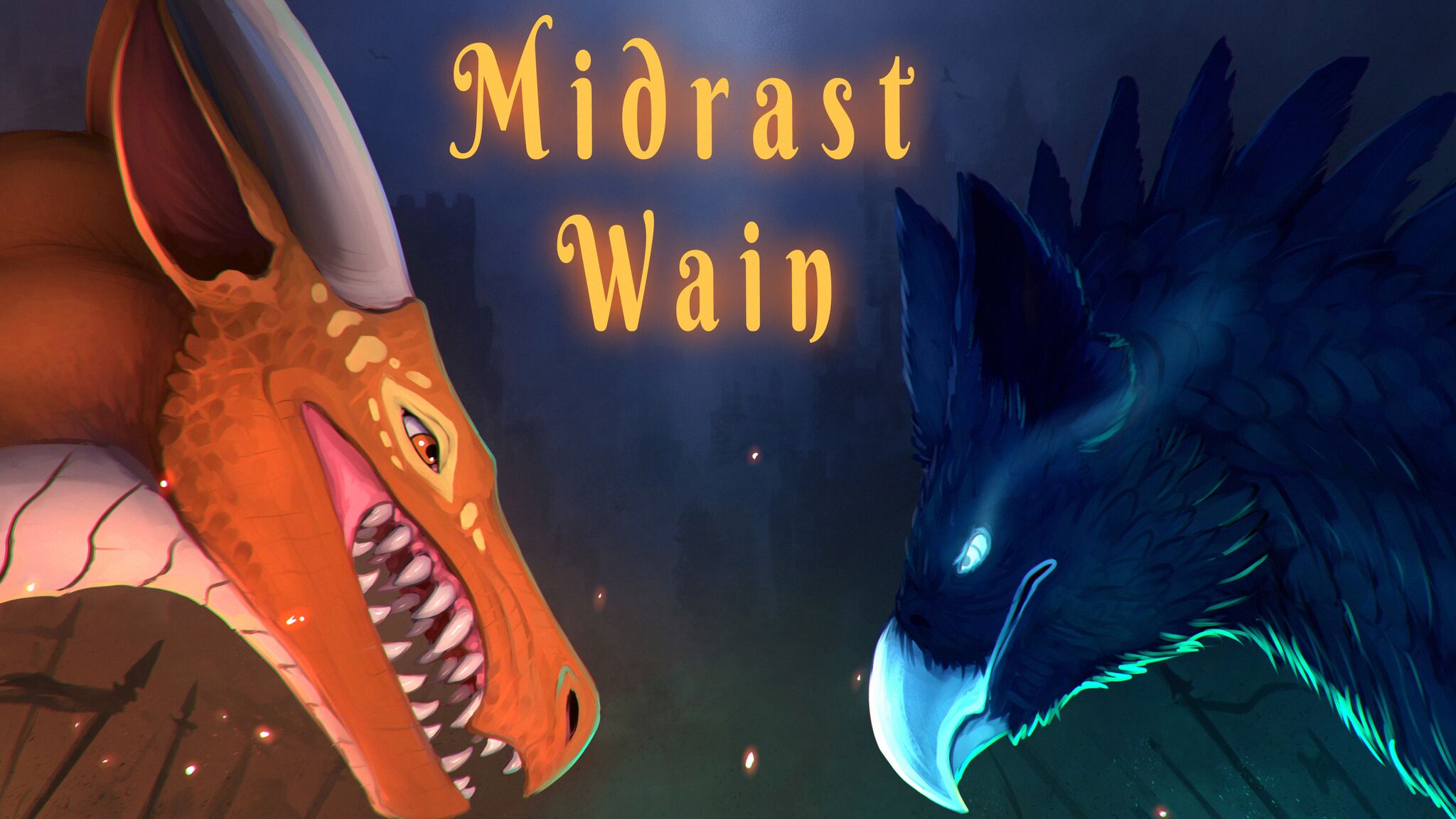Wild dragons
They call us savages, barbarians 'n worse. Them same dragons who can't even catch a bo'r. Not if their life depended on it.Karotnel, Wild dragon of the Gloom Slopes Compared to the other Draconic species, Wild dragons are not a unified collection of individuals living in a specific area. Any dragon from any species that live the majority of their life outside of their tribe or has been Exiled becomes a Wild dragon, that is someone that lives in the wilderness outside of the 5 major draconic civilizations. Living outside of the society is harsh and unforgiving environment full of dangers and constant movement but it also makes these dragons hardened survivalists that know the areas and animals they live in extremely well. For most "civilized" dragons, that is dragons from any of the five major draconic areas, these barbarians are shunned and avoided at best, attacked and driven off at worst. Very few individuals would trust one to come anywhere near them as they consider them more of a beast rather a dragon in their mannerisms and oftentimes are suspected of being infected with Witlessness. This all aside, Wild dragons oftentimes band together to form simple tribes or bigger groups for safety. The most renown collection of Wild dragons are misfits known as Silk's Broadwings.
Naming Traditions
Feminine names
Names can follow the naming traditions of any of the 5 major draconic species if they used to live there but were exiled later. Here are some names that are common for dragons hatched in the Wilds:
Aretnei, Korpa, Porka, Leui, Orily, Jednuna, Arakata, Pokuroti
Aretnei, Korpa, Porka, Leui, Orily, Jednuna, Arakata, Pokuroti
Masculine names
The same as above:
Karotnel, Borutnol, Horut, Kordol, Lungeon, Serratih, Pojulop, Stronol, Gorgoth
Karotnel, Borutnol, Horut, Kordol, Lungeon, Serratih, Pojulop, Stronol, Gorgoth
Unisex names
The same as above:
Torno, Lotolo, Portuno, Ryleeto
Torno, Lotolo, Portuno, Ryleeto
Culture
Major language groups and dialects
Dragons surviving in the wilds for a long time tend to develop a growlier tone of voice, mostly because their speech can sometimes be impeded by months or years of solitary life. Those within groups less so, but outside of civilized societies, even they may sometimes lose the ability to correctly pronounce certain words.
Shared customary codes and values
Amongst most Wild dragons it is customary to share one's possessions amongst a group. That is not to say one has to strip themselves of their trophies and other wearables, but survival is the prime concern for most and as such, all dragons within it are expected to keep each other safe and comfortable.
Common Etiquette rules
Life in the wilderness can be difficult, if not from survival standpoint, then because of outside influences such as Witless ones or civlized dragons sending Clawstoppers to ambush them without any prior warning.
It is thus of utmost importance to try and eliminate one of these two threats beforehand, which is why Wild dragon groups send out one of their own on behalf of their group to try and reason with their civilized neighbours (if they have any) and ask for permission to stay. Common practice is thus sending the one who has the most experience with the tribe in question and offer a small tribute - as a token of goodwill.
Common Customs, traditions and rituals
Celebration of Passing is practiced even amongst the Wild dragons at the end of each year. Many wild dragons use this opportunity to recall the events of the past year, tell each other stories around campfires until the late night and feast.
Birth & Baptismal Rites
The hatching of new dragons is something the entire group celebrates similarly to Celebration of Waking, except it is generally celebrated by the entire group and hatchlings are also cared for by everyone, no matter if they are their biological parents or not.
Common Taboos
Every now and then there happens a situation where a Wild dragon falls in love for a civilized dragon. While such an occasion is more than welcome for the group if the civilized dragon is willing to become a part of the group, it is a much less desirable and difficult problem when it is the other way around.
And it is in vast majority of cases the other way around. Problem is of course the fact that civilized dragons are usually extremely suspicious and unwilling to accept a Wild dragon amongst themselves, especially for fear that they might be infected with Witlessness but also because of their lack of manners and knowledge of how to act in their society.
Ideals
Beauty Ideals
Considering the fact Wild dragons tend to live fairly solitary lives and form unions only under the best of circumstances, these nomads do not tend to have very many unified standards in terms of beauty.
It is very rare for one dragon to meet another but when possible, tattoos, scars, body paints, necklaces of teeth or other prized trophies from a fearsome beast worn proudly are generally regarded as very appealing.
Courtship Ideals
Groups of Wild dragons oftentimes form out of necessity for protection, food supply or material gathering and it is during those times that courting happens naturally. If group does well, survives, works together and overcomes obstacles, bonds are formed and relationships start to blossom.
Relationship Ideals
Relationships within a group of Wild dragons are generally as varied as there are groups. What may be possible within one group, may be absolutely abhorred by another. It is not terribly uncommon to have groups where a single male maintains relationships with several females or one female with several males, as well as the more standard relationships where intimacy is shared only between two individuals.
What is important to note however is that most of these groups intent on survivng will avoid producing offspring unless they can afford to feed and shelter them.
Encompassed species
Remove these ads. Join the Worldbuilders Guild









Comments